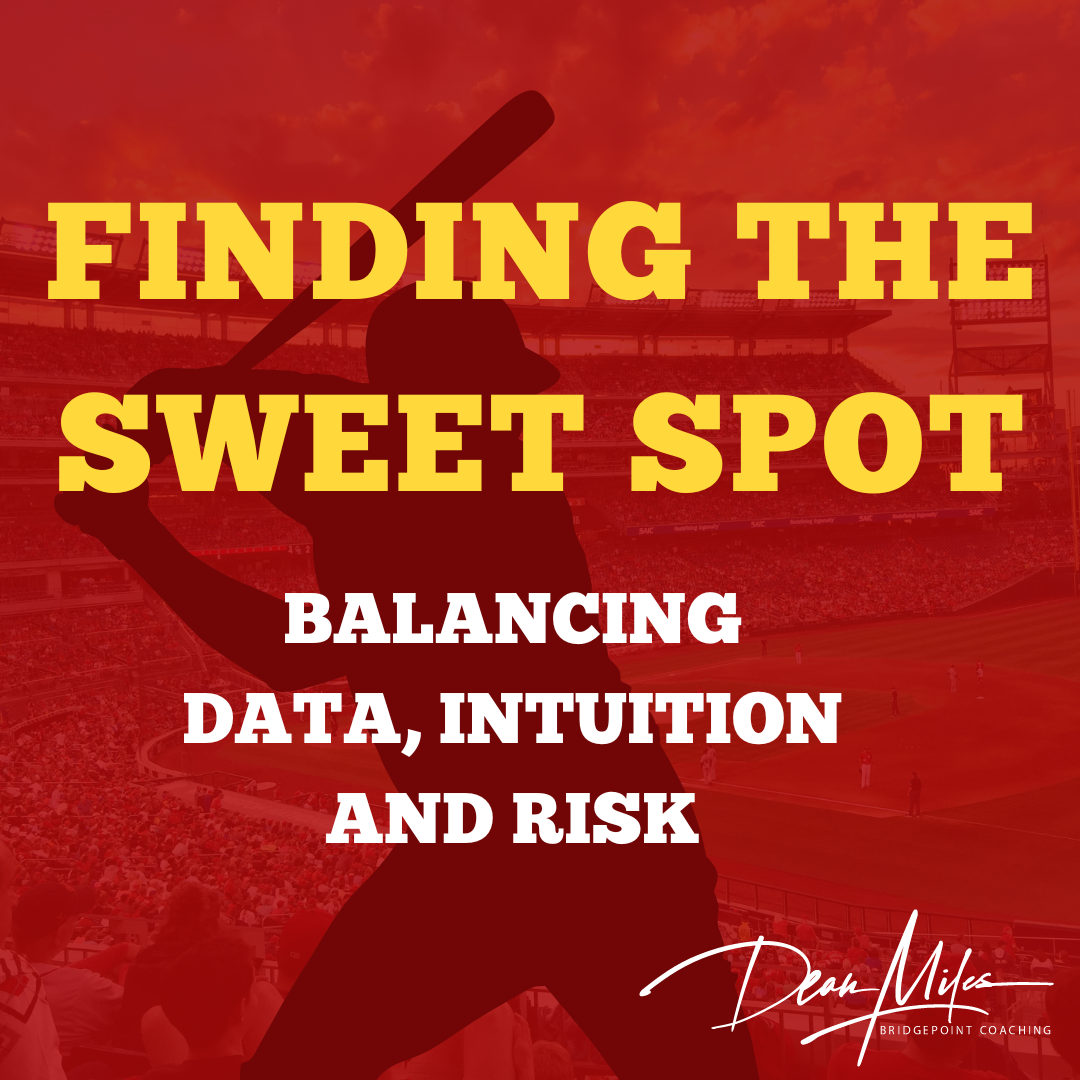Feb27

As leaders, we're constantly striving to make the best decisions for our organizations, and in today's data-driven world, analytics and statistics often play a key role in that decision-making process. But what happens when the data doesn't tell the whole story, or our gut instincts are in conflict with what the numbers are saying? This is a question that many of us grapple with, and one that was explored in the book and movie Moneyball.
Moneyball tells the story of how the Oakland A's baseball team used analytics and statistics to build a winning team, despite having a much smaller budget than their competitors. But even with all the data, they still had to make difficult decisions based on their instincts and experience. As Billy Beane, the team's general manager, famously said: "Your goal shouldn't be to buy players, your goal should be to buy wins. And in order to buy wins, you need to buy runs."
However, even with this data-driven approach, leaders can still find themselves in situations where the data doesn't tell the whole story or where their instincts are in conflict with what the numbers are saying. Take the example of Jeff Bezos, the founder and former CEO of Amazon. Bezos was known for his relentless focus on data and analytics, but even he acknowledged that there were times when data alone wasn't enough. In an interview with Business Insider, Bezos said: "Most decisions should probably be made with somewhere around 70% of the information you wish you had. If you wait for 90%, in most cases, you're probably being slow."
Another example comes from the world of healthcare, where doctors and medical professionals are constantly using data to make life-or-death decisions. However, even with all the data, they still have to rely on their instincts and experience to make the best choices for their patients. As Dr. Atul Gawande, a surgeon and author, writes in his book The Checklist Manifesto: "We need to accept that we will occasionally make mistakes, and that those mistakes shouldn't be viewed as personal failures. They're simply the inevitable consequences of being human in a complex world."
In the end, Moneyball reminds us that data and analytics are powerful tools that can help us make better decisions, but they're not a substitute for experience, judgment, and intuition. As leaders, we need to strike a balance between the two, and recognize that even with all the data, there will still be times when we need to rely on our instincts to make the best decisions for our organizations.
By Dean Miles
Keywords: Business Continuity, Coaching, Mental Health
 Lateral Moves: The Most Overlooked Succession Strategy in Companies
Lateral Moves: The Most Overlooked Succession Strategy in Companies The Asset Play: Timing, Structure & Global Arbitrage
The Asset Play: Timing, Structure & Global Arbitrage  The Orchestra Needs a Conductor: Why Multi-Model Agents Require H2E Governance
The Orchestra Needs a Conductor: Why Multi-Model Agents Require H2E Governance The Role of Memory in Modern-day Business
The Role of Memory in Modern-day Business The Architectures of Permanence: A Comparative Analysis of the "Big Three" AI Strategies (2026)
The Architectures of Permanence: A Comparative Analysis of the "Big Three" AI Strategies (2026)